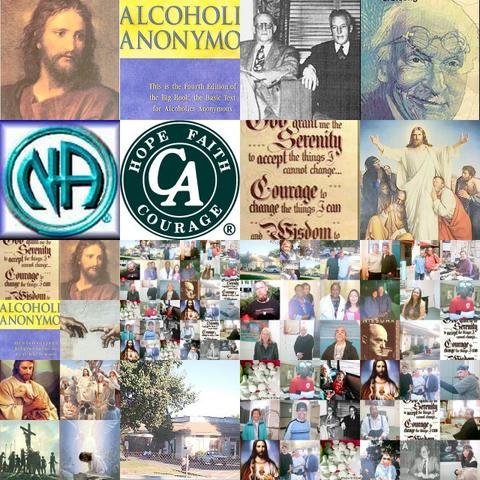Drug War Chronicle - world's leading drug policy newsletter
Feature: On the 75th Anniversary of the Repeal of Prohibition, Reformers Ponder the Past and Look to the Future
Today marks the 75th anniversary of the repeal of alcohol Prohibition, when Utah -- Utah!--became the 38th state to ratify the 21st Amendment to the Constitution, repealing the 18th Amendment and the Volstead Act and drawing the curtain on America's failed experiment with social engineering. Repeal of Prohibition seemed unthinkable in 1930, but three years later it was history. Perhaps there are lessons to be learned as we commemorate that day.

prohibition-era beer raid, Washington, DC (Library of Congress)
At a Tuesday press conference in Washington, DC, LEAP unveiled a new project, We Can Do It Again!, where people are invited to send the anti-prohibitionist message to their federal representatives, and a report with the same title detailing and comparing the ills of Prohibition and current day drug prohibition. In its recommendations to policymakers, the report called for a national commission to study the true costs of drug prohibition, called on state and local legislatures and executive branches to reevaluate drug war spending, and urged "incremental reforms" and harm reduction measures in the short-term.
"In 1932, a majority of Congress realized that prohibition was ineffective," recalled Eric Sterling, head of the Criminal Justice Policy Foundation, at the press conference, "In 1933, more than two thirds of Congress sent prohibition repeal to the States for ratification. We ended prohibition's ineffective approach to alcohol control then, and we can do it again for drug prohibition now."
The parallels between Prohibition and today's drug prohibition are many, said Sterling. "Congress embraced the term 'war on drugs' in the early 1980s as the Colombians drove the Cubans out of control of the cocaine traffic with machine gun battles on South Florida streets and shopping malls. The violence mimicked the street battles to dominate the beer and liquor trade in American cities in the 1920s, exemplified by the 1929 Valentine's Day massacre in Chicago," he noted. "In 1929 the ruthless violence of Al Capone was fueled by alcohol prohibition profits. Maintaining our current approach, in 2009, the violence of al Qaeda will be financed by drug prohibition profits. We have to stop this violence, as we did 75 years ago. In Colombia, for more than two decades, I have observed drug prohibition finance terror -- by both the enemies and the allies of the government -- that undermines the institutions of their society. Seventy-five years ago, we ended the violence of alcohol prohibition, and we must do it again. We can do it again."
"We believe there are significant similarities between alcohol Prohibition and the drug war prohibition we have going on right now," Richard Van Winkler, LEAP member and superintendent of a New Hampshire correctional facility, told the Chronicle Thursday. "Prohibition doesn't stop Americans from using any substance they choose to. We tried that in the 1920s, and it failed, and now we are trying it again. We advocate for drug legalization not because we advocate for drug use, but because as those drugs are prohibited, we will continue to fund a significant criminal element that is getting larger and more powerful every day."
Sterling and LEAP weren't the only people musing about the end of Prohibition this week. "There are significant parallels, but also dissimilarities," said Dale Gieringer, head of California NORML. "Both Prohibition and drug prohibition are products of the same Progressive Era, an era of intense temperance agitation on all levels, with a lot of religious fervor behind it. One lasted 13 years, the other is with us still."
Long-time marijuana activist Dana Beal of Cures Not Wars saw little reason for optimism in the end of Prohibition. "I think you're dreaming if you think you can apply to marijuana the experience of repeal of prohibition of the psychoactive sacrament of the Catholic Church," he said. "Think outside the box. The end of alcohol prohibition has almost zero lessons for how we get out of pot prohibition."
But his was a decidedly minority view. "One lesson we can draw from Prohibition is that it did not work very well," said Aaron Houston director of government relations for the Marijuana Policy Project, "and we're seeing parallels to that today. In Mexico, the drug trade violence is spectacularly awful and increasingly vicious. Heads are rolling onto playgrounds there, and the cartels are coming to the US and kidnapping American citizens. By maintaining prohibition, we are giving our money to some very, very bad people, and there is a lesson there for our current prohibition policy; I call it the Al Capone lesson," he said.
"I think what many people don't realize is that what gave the Prohibition repeal movement muscle in 1930 was the Great Depression," said Houston. "Federal income tax revenues were declining significantly. Now, we are seeing similar economic problems. I think reformers should focus on the cost of marijuana prohibition. We have 13 states that are spending more than a billion dollars a year each on prisons, and what's the payoff?"
One big difference between Prohibition and drug prohibition is the level of debate, Gieringer said. "There was a huge public debate about Prohibition, it was a dominant issue for years, but there was very little debate about drug prohibition. Even now, drug prohibition is not that much of an issue.. There is a lot of very ugly stuff going on in foreign countries, but that's not here. The last time drugs were a big issue here was 20 years ago, with the crack violence in the streets of America, and that got people riled up and not in an anti-prohibitionist way."
Some of the sunnier views of both the status quo and the prospects for change come from California, where the state's loosely-written medical marijuana law has created a sort of de facto personal legalization for anyone with a little initiative and $150 for a visit to the doctor's office for a recommendation. The state's network of dispensaries, now in the hundreds, has flourished despite the DEA's best efforts, creating a real world vision of what retail marijuana sales could look like. And now, the incoming president has promised to call off the dogs.
"After being involved in this issue since 1994, I think we're seeing a need for a lot of things to shift around to end prohibition, and the perfect storm may have arrived this year," said Jeff Jones, founder of the Oakland Cannabis Buyers Club. "We have the alignment of a Democratic Congress and a Democratic president who has said he has used drugs, both soft and hard, and an economic recession. This could trigger a turn similar to that which we saw with the Great Depression and Prohibition."
Facts on the ground are creating a new reality, Jones said. "An end to prohibition is knocking at the door. There are new tax revenue streams being identified here, and public officials are starting to rethink this whole issue. And the Supreme Court's refusal to overturn the Kha case [where a California appeals court ruled that state and local police need not enforce federal drug laws; see story here] means it's over. We won with no fanfare. We don't get a badge or a checkered flag, but by default, we have won this week. It doesn't matter what the feds do. We're going to create infrastructure, jobs, and tax dollars, and we're going to change minds. The medicalization of cannabis has changed things forever, and there's no going back now," Jones prophesied.

Speakeasy photo, with flappers (courtesy arbizu.org)
"I think with marijuana prohibition, developments on the ground can drive the lawmakers faster than anything else," said Gieringer. "We had medical marijuana in California before we ever passed Proposition 215, thanks to people like Dennis Peron. And now you have Oaksterdam and the efforts to promote that. Although that is still in embryonic form, the more we have it out there on the ground, the more people will come to accept it."
Coming out of the closet is both desirable and necessary, said Gieringer. "Most people are happy as long as drugs stay out of sight and mind, but as we've seen with the LA cannabis clubs, people have learned to be comfortable having them around. We need more of this. Drugs in general need more public visibility to gain more public acceptance," Gieringer argued. "People need to know the world isn't going to collapse, because they've forgotten what it was like a hundred years ago, when our 19th Century legal drug market worked very well."
"With alcohol Prohibition, people had living memories of life before Prohibition," agreed LEAP's Van Wickler. "The generation taking power now doesn't know life without drug prohibition. That makes the paradigm shift all the more difficult."
But even with what's going on in California, there is a long way to go, said Gieringer. Federal legalization of marijuana is unlikely, he said, and thus, so is outright legalization in the states. "I don't see any state passing legalization, in part because of the harsh federal response to medical marijuana. What we need to do is first create de facto, on the ground legalization," as is arguably or partially the case in Gieringer's home state.
The United States has pinned itself to perpetual prohibition through the UN Single Convention, Gieringer noted. Federal legalization would require modifying the convention, and that would require a two-thirds vote in the Senate.. "That's a major project, given that we don't have even one senator who even supports medical marijuana, much less decriminalization," he noted dryly.
If the federal government appears unmovable in the near term, then it is going to be up to the states to push the envelope, despite the obstacles. "I think the end of marijuana prohibition is going to come with the states taking action first," said Dr. Mitch Earleywine, a leading academic marijuana expert and editor of Pot Politics. "As a number of states not only have good experiences, but also start bringing in the tax revenues, the cogs will begin to turn at the federal level. We're already seeing this in California, where the rough economic times are being buffered by medical marijuana cash."
But despite all the cautious prognostications, there is one final lesson of Prohibition that may warm reformers hearts. "One of the most cheering things about Prohibition was that even though it looked impossible to end for so long, it collapsed so quickly," Gieringer said. "In 1930, the prohibitionists said there was as much chance of ending it as a bird flying to the moon with the Washington monument tied to its tail, but within three years it was gone. The conventional wisdom of 1930 about Prohibition is the same as the conventional wisdom about repealing the drug laws now, but as we saw, things can happen very quickly."
So, tonight, toss down a cold one as you commemorate Repeal Day and hope we don't have to wait another 75 years to celebrate the end of drug prohibition. How about 7.5 years instead?
Educate to Liberate!
Third-World-News Yahoo Group
Peter S. Lopez aka: Peta
Email: peter.lopez51@yahoo.com
Sacramento, California, U.S.A.

 digg
digg reddit
reddit
No comments:
Post a Comment
Please give feedback with respect!